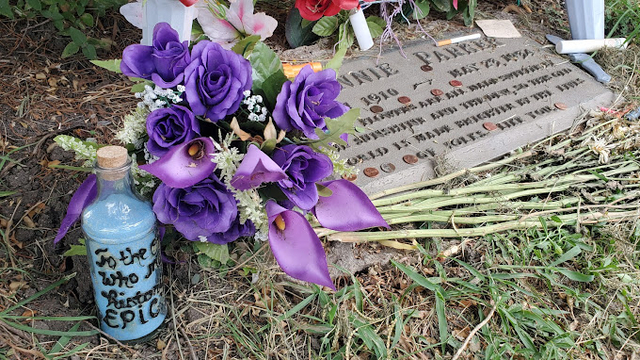Bonnie Parker's Gravesite: A Testament to a Turbulent Era
Bonnie's Legacy: Beyond the Romantic Myth
While Bonnie and Clyde's story has been romanticized in popular culture, it's essential to remember the very real trail of destruction they left behind. Their audacious crimes brought fear and, tragically, death to many across the Southwest. Yet, the public's fascination with their exploits speaks to the era's desperation, where some viewed the outlaws as symbols of defiance against a broken system.
A Quiet Resting Place
Bonnie's original burial in Fish Trap Cemetery was modest, reflecting her hasty and violent end. Her later reburial in Crown Hill, closer to her family, offers a sense of finality. Her simple headstone, bearing only the surname "Tyner," starkly contrasts the grandiose tales often attached to her name. Visitors drawn to the site are left to contemplate the complex legacy of this infamous woman.
Family Ties and Unfulfilled Wishes
The controversy surrounding Bonnie's gravesite highlights the enduring complexities of her life and relationships. Her parents' initial desire for her to be buried alongside Clyde reflects their struggle to reconcile their daughter's violent path with their love. However, Bonnie's mother's ultimate rejection of this plan reveals the deep societal divide on how the outlaws should be remembered. The fact that Bonnie's niece still seeks to unite the lovers in death demonstrates the lingering fascination with their story and the unresolved questions it raises.



